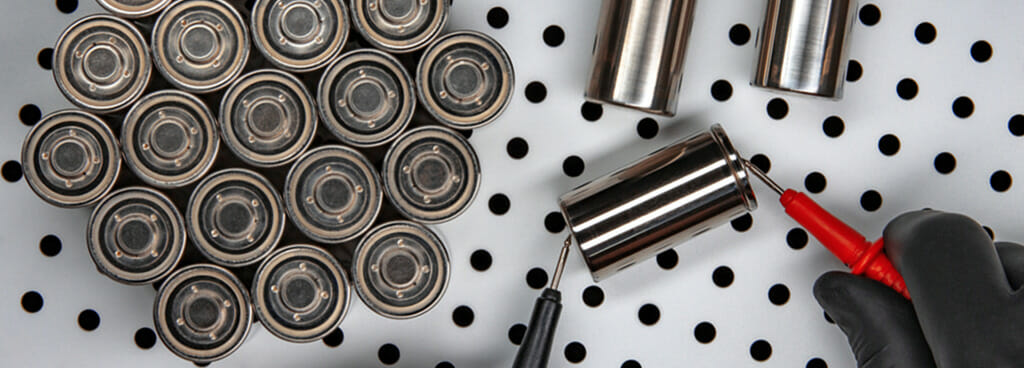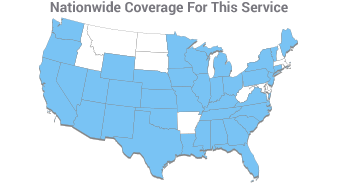- Home
- Services/IndustriesServicesindustries
- About Us
- LocationsStatesAccordion ContentAccordion ContentAccordion ContentAccordion Content
- Job Openings
- Quick Links
- ATS Family

RESS Safety and Abuse Testing
The ATS Family of Companies (FoC) provides RESS safety and abuse testing according to the SAE J2464 standard for hybrid and electric vehicles. Safety and abuse testing help uncover design flaws and promote improved Rechargeable Energy Storage System (RESS) performance.
After designing a prototype, manufacturers may enlist an independent third-party lab for reliable testing and certification. Our mechanical and electrical testing labs are A2LA-accredited in ISO/IEC 17025 procedures. We can help clients select the relevant procedures to help products reach the market sooner without extraneous costs.
Additionally, our experts support strategic battery development and optimization through the following:
- Application Simulation
- Control Strategy Development
- Prototype Evaluation
- Field Testing
Identifying RESS Safety Hazards
Before a RESS reaches the market, manufacturers must ensure the product’s safe operation in typical and adverse circumstances. The electrochemical reactions that make RESS such a powerful energy source can also pose safety hazards.
Thermal runaway is a significant hazard in deficient batteries. It occurs when the battery overheats, causing it to vent toxic gases that may lead to fire or explosion. Thermal runaway occurs for multiple reasons, such as mechanical, thermal, and electrical abuse. These abuses may be due to user error, product or material defect, malfunction, or collision.
SAE J2464 Testing
The SAE J2464 standard describes abuse testing procedures for vehicle applications and RESS devices. Rigorous mechanical and electrical abuse tests help manufacturers anticipate how a RESS may react to normal operating conditions, misuse, and collisions.
Mechanical Abuse Testing
Manufacturers need to know if a product can withstand the mechanical stresses of typical operation and reasonable abuse without becoming a safety hazard. The ATS FoC can provide lab testing that simulates abnormal circumstances and mechanical abuse, including:
- Crush
- Drop
- Immersion
- Penetration
- Roll-Over
- Shock
At the ATS FoC’s state-of-the-art battery testing lab, experienced and qualified experts operate a variety of powerful equipment capable of delivering heavy loads, vibration waves, and temperature control.
Electrical Abuse Testing
Electrical abuse tests check how well products resist electrical abuse, helping manufacturers understand the system’s reactions and potential safety hazards. Electrical abuse can endanger the entire vehicle due to thermal runaway, toxic gasses, and loss of power. ATS FoC experts can perform a variety of electrical abuse tests:
- Capacity
- Overcharge
- Overdischarge
- Partial Short Circuit
- Short Circuit
- Thermal Runaway
A2LA-Accredited Lab Testing
Safety testing with a qualified independent lab can help get a RESS product to the market faster. The ATS FoC operates multiple A2LA-accredited laboratories nationwide. Our experts perform specialized safety tests in a Hazard Containment Room (HCR) dedicated to safe high-risk battery testing. The hardened design helps the lab contain explosions and douse fires to protect the rest of the building. Additionally, our ventilation system can mitigate heat release and dilute flammable gases.
Our experts use powerful equipment capable of reaching 300 kilowatts (kW) of power, 750 volts (V), and 1,040 amperes (A) currents. For temperature-controlled testing, such as capacity testing at elevated temperatures, we can test the battery in a temperature chamber capable of reaching as low as -68 ˚C to as high as 120 ˚C.
The ATS FoC
The ATS FoC delivers consulting engineering, calibration, inspection, and testing services to clients nationwide. We offer high-quality customer service and a quick turnaround rate to help clients make critical and timely business decisions. Our experts can provide services at client sites or one of multiple A2LA-accredited laboratories.
Contact Us
As the automotive industry moves toward electric energy, the ATS FoC supports manufacturers and distributors throughout a battery’s life cycle. From testing a design to monitoring field performance, we are here to fulfill our clients’ needs.
Call +1 (888) 287-5227 or use the form on this page to request RESS testing.

Request Form
"*" indicates required fields
Battery Testing Links
- Abuse Testing Lithium Ion Batteries
- Battery Abuse Testing
- Battery Chemical Analysis
- Battery Durability Testing
- Battery Electrical Testing
- Battery Impact Testing
- Battery Management Systems BMS Testing and Certification
- Battery Performance Testing
- Battery Safety and Certification Testing
- Battery UL Certification
- Battery Vibration Testing
- Chemical Testing EV Batteries
- Electrical Testing EV Batteries
- Electrical Vehicle Battery Testing
- E Mobility Battery Testing
- Energy Storage System ESS Testing and Certification
- E Scooter Battery Testing
- EV Battery Testing Lab
- EV Battery Mechanical Testing
- EV Battery Pack Vibration
- EV Battery Thermal Testing
- High and Low Temperature Testing EV Battery
- Hoverboard Battery Testing
- IEC 60896-21 Stationary Valve-Regulated Lead-Acid Batteries
- IEC 61427 Secondary Cells and Batteries for Photovoltaic Energy Systems Testing
- IEC 62133 Lithium Battery Safety Testing and Certification
- IEC 62133-2 Lithium Ion Battery Testing Certification
- IEC 62619 Secondary Cells and Batteries Containing Alkaline Testing
- Lead Acid Battery Testing
- Mechanical Testing EV Batteries
- Micro Mobility Battery Testing
- PNNL 22010 ESS Performance Testing
- RESS Safety and Abuse Testing
- RTCA/DO-311 Performance Testing Lithium Batteries
- SAE J1798 Performance Rating of EV Battery Modules Testing
- SAE J2185 Life Testing Heavy-Duty Storage Batteries
- Telcordia GR Battery Testing
- Thermal Testing EV Batteries
- UL 1642
- UL Battery Certification
- UL 1973 Battery Testing
- UL 1989 Standby Battery Testing and Certification
- UL 2054
- UL 2271 E Bike Battery Testing and Certification
- UL 2580 Electric Vehicle Battery Testing and Certification
- UL 9540A
- UL 9540 Thermal Runaway In ESS Testing and Certification
- UN 38.3 Testing
- USABC Battery Testing
- Verizon VZ.TPR Battery Testing
